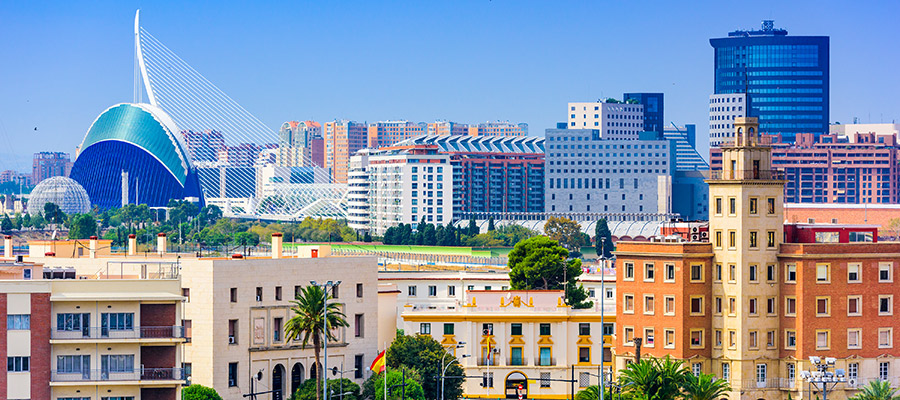Project is aimed at making the Valencia region a leader in green hydrogen production.
BP has launched its HyVal green hydrogen cluster project, in Spain. Located at the company’s Castellón refinery in Valencia, the public-private project is based around the phased development of up to 2GW of electrolysis capacity for producing green hydrogen by 2030. This development will support decarbonisation of the refinery’s operations, replacing the use of ‘grey’ hydrogen, derived from natural gas, with green hydrogen.
Green hydrogen is a type of hydrogen fuel produced using renewable energy sources, such as wind or solar power, to split water molecules into hydrogen and oxygen through a process called electrolysis. Unlike traditional hydrogen production methods, which rely on fossil fuels, green hydrogen production emits no greenhouse gases and is considered a zero-emissions fuel.
BP is set to invest up to €2 billion in Castellón. As well as green hydrogen, the project will see the increase of biofuels capacity, up to 650,000 tonnes per year, and renewable energy by 2030. BP said that the HyVal project could be seen as key to the transformation of Castellón and critical to supporting decarbonisation across the Valencia region.
‘We plan to triple the refinery’s production of biofuels to help meet the growing demand for lower carbon fuels such as sustainable aviation fuel (SAF). We believe HyVal can play an important role in Valencia region’s efforts to decarbonise and help support thousands of industrial jobs across the region,’ said Andrés Guevara, President of BP Energía España, speaking at the launch of the project. The green hydrogen will also be used by key hard-to-abate industries in the region such as the ceramic, chemical and heavy transport sectors.

Valencia: a city of arts and science, the birthplace of paella... and a trailblazer in the green hydrogen revolution?
Brought on in phases, the first is due to become operational in 2027, at which time an electrolysis plant with a capacity of 200MW and some 31,200 tonnes of green hydrogen annually will become available. This will be used to replace natural gas and prevent an estimated 300,000 tonnes of carbon dioxide emissions. It will also be used as a feedstock for the production of SAF at the refinery.
The second phase, slated for completion in 2030, will see the expansion of the electrolysis plant, up to 2GW, with enough green hydrogen being produced to meet export demand. BP said that its Castellón refinery is well connected with national and international markets, enabling it to support decarbonisation of hard-to-abate industries across Spain.
BP added that HyVal could include participation from companies across the Valencia region, public institutions, and research and training centres.The project could also lead to the creation of up to 5,000 direct and indirect jobs in the region.
BP is involved in the development of a number of hydrogen projects around the world. In Abu Dhabi the company, working with several partners including Masdar and ADNOC, is looking at the feasibility of developing the region’s first project producing SAF using renewable hydrogen. At the start of 2023 the company announced that it was studying the possibility of building an ammonia cracker in Germany, producing up to 130,000 tonnes of low-carbon hydrogen. And in the UK, BP is developing a green hydrogen production capacity in Teesside. A final investment decision on the project is due this year.
